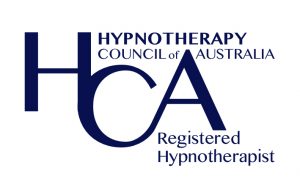
Low self-esteem is a pervasive issue that affects many people at different stages of life. It can be characterized by a lack of confidence, self-worth, and an overall negative view of oneself. While low self-esteem in itself is a significant challenge, it can also lead to more severe problems, including the development of alcoholism. Understanding the connection between low self-esteem and alcohol abuse is crucial for both prevention and effective intervention.
The Link Between Low Self-Esteem and Alcoholism
People with low self-esteem often experience feelings of inadequacy, self-doubt, and a persistent sense of being unworthy. These negative feelings can be overwhelming, and some individuals may turn to alcohol as a way to cope with these emotions.
Alcohol, being a depressant, initially provides a numbing effect that can temporarily relieve the discomfort associated with low self-esteem. This temporary relief can create a dangerous cycle where the individual increasingly relies on alcohol to escape their negative feelings.
Alcohol as a Coping Mechanism
:For someone struggling with low self-esteem, alcohol can appear to be an effective way to alleviate emotional pain. The social lubricant effect of alcohol can make individuals feel more confident and less self-conscious in social situations. This false sense of confidence can reinforce the behavior, leading to more frequent and excessive drinking as a way to feel better about oneself.
Escalation of Use
:Over time, the reliance on alcohol to manage low self-esteem can lead to increased tolerance, meaning the person needs to drink more to achieve the same effect. As the consumption increases, the risks of developing alcohol dependence or alcoholism also rise. This escalation is often gradual, and the individual may not recognise the problem until it has become a serious addiction.
The Vicious Cycle
:Alcohol may provide temporary relief, but it ultimately exacerbates the problems associated with low self-esteem. Excessive drinking can lead to poor decision-making, strained relationships, and issues at work or school. These consequences can further damage the individual’s self-esteem, creating a vicious cycle where they drink more to cope with the worsening feelings of worthlessness and failure.
Impact on Mental Health
Low self-esteem and alcoholism are also closely linked with other mental health issues such as depression and anxiety. Alcohol, while initially seeming to alleviate these conditions, often worsens them over time. The depressive effects of alcohol can deepen feelings of hopelessness and despair, making recovery more challenging.
Breaking the Cycle: Addressing Low Self-Esteem and Alcoholism
Breaking the cycle of low self-esteem and alcoholism requires a comprehensive approach that addresses both issues simultaneously.
The relationship between low self-esteem and alcoholism is complex and multifaceted. While alcohol may seem to offer a temporary escape from feelings of inadequacy and self-doubt, it ultimately perpetuates and worsens the underlying issues. By addressing low self-esteem through therapy, building a support network, and adopting healthier coping mechanisms, individuals can break the cycle of dependence on alcohol and begin to build a more positive and fulfilling life.


